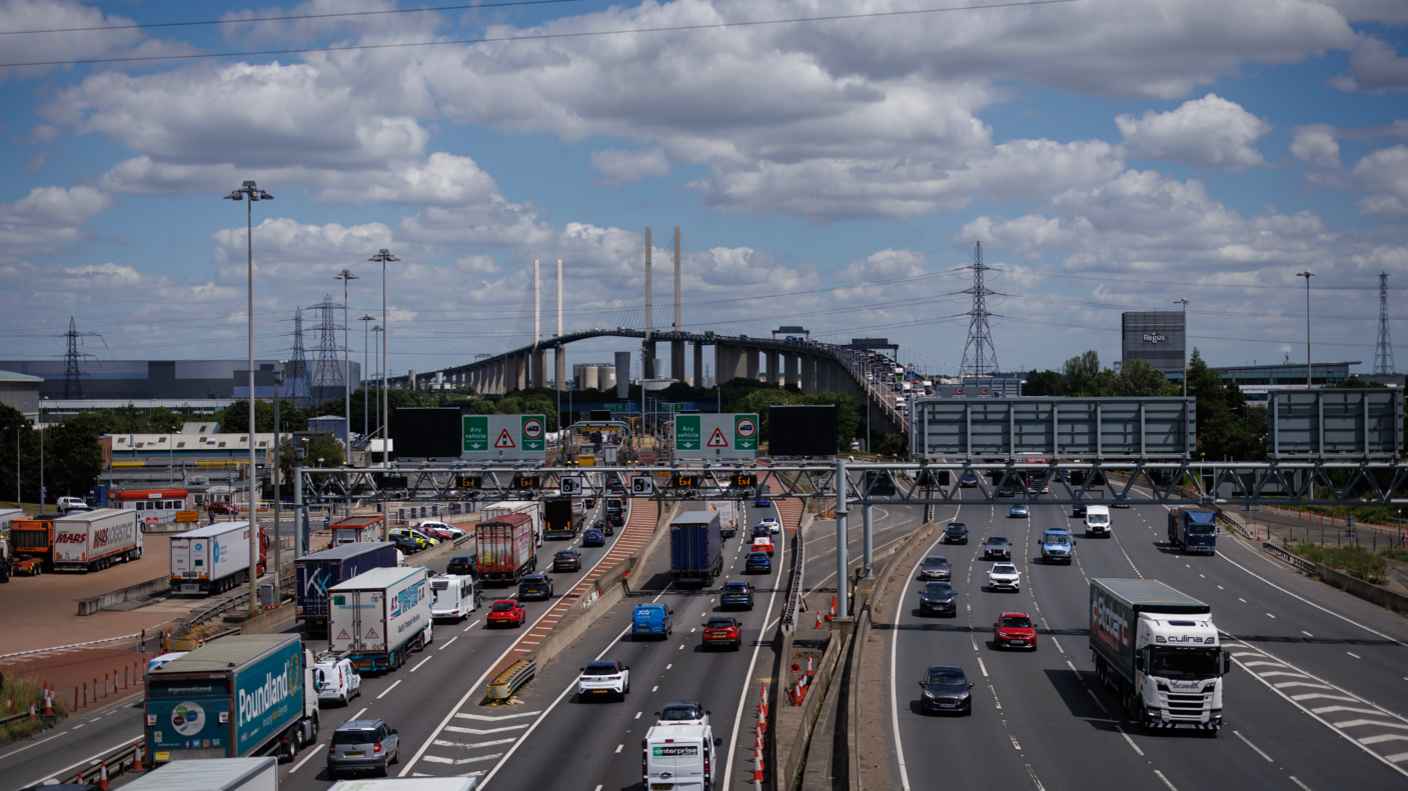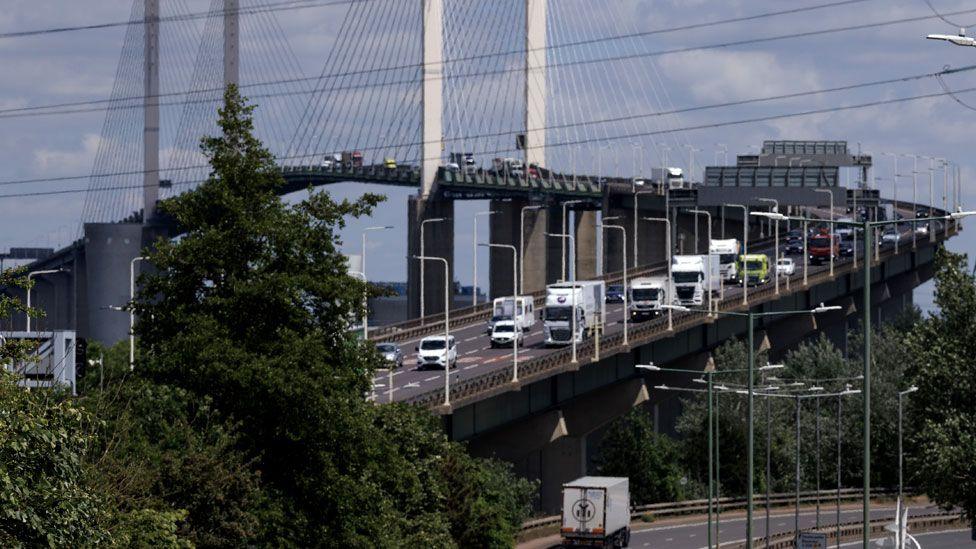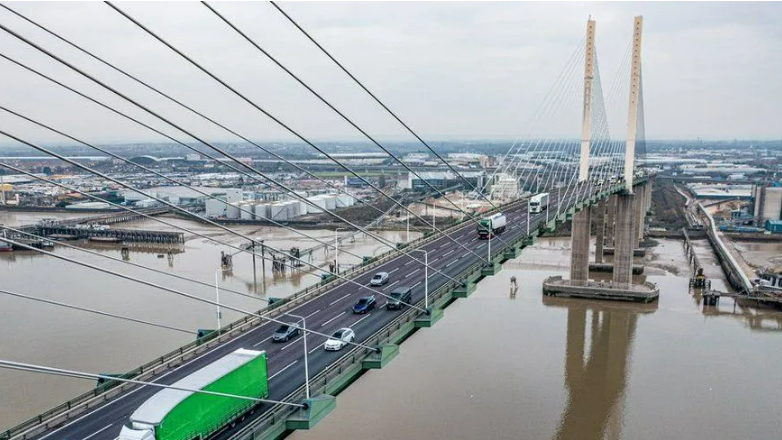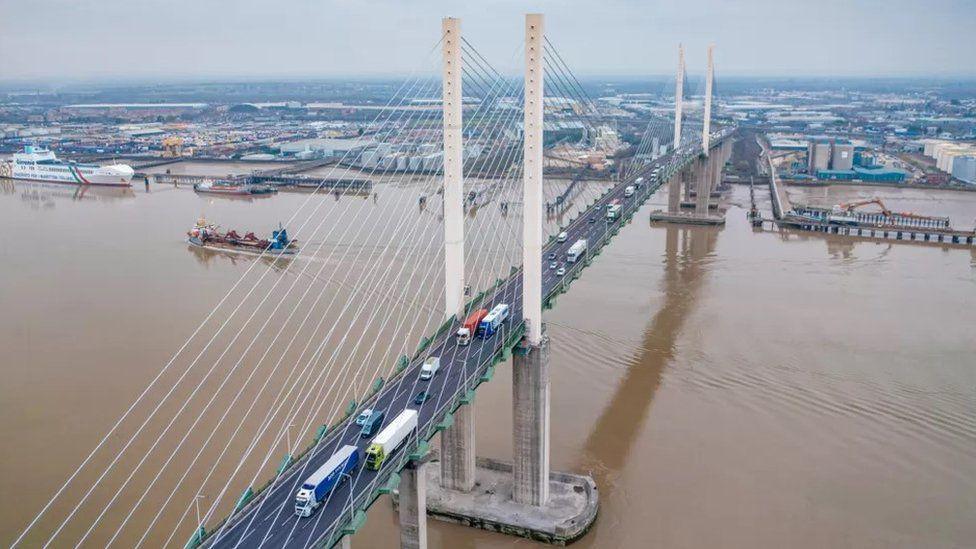People lose £5m in unused Dart crossing payments

The Dartford Crossing saw more than 55 million journeys during charging hours last year
- Published
Almost £5m has been taken in Dartford Crossing deposits and kept by the Department for Transport, a BBC investigation has revealed.
The money came from "one-off customer payments" from 2014 onwards, when toll booths on the crossing were removed and online charging came into force.
National Highways said customers were "made aware at the time of payment that the credit will be valid for 12 months".
But it also acknowledged that it had changed this system and the one for Dart Charge account holders in 2021 and would now "automatically refund" people.
Financial accounts for the Dartford Crossing road charging scheme for 2022-23, external show that of the £5.3m collected from these pre-paid deposits, £4.9m had been retained by the Department for Transport.
The report revealed £300,000 had been refunded and a further £100,000 set aside for claims, with the remainder referred to as "Net Income".

The money was deposited by motorists for Dart Charge crossings
The National Highways website, external states that a Dart Charge account can become dormant if it does not have:
a vehicle registration (number plate)
a valid payment method
enough money in it to pay for a crossing
a record of crossings made in a 12-month period
If you believe you may have money in a dormant account and want to claim a refund you can use the online enquiries form, external or call 0300 300 0120.
'Inactive accounts'
In the past year, 55 million crossings were made during charging hours (between 06:00 and 22:00).
The crossing is made up of the Queen Elizabeth II Bridge and the Dartford tunnel, which both connect the M25 in Essex with the A282 in Kent.
Motorbikes can cross for free, for cars a one-off journey is £2.50, vans and small lorries pay £3.00, while for larger lorries it costs £6.00.
The amount is reduced, external if you have a Dart Charge account, which is part of the incentive to pre-pay, as well as reducing the hassle for frequent users.
National Highways said that if an account was deemed inactive, "customers are contacted by their preferred communication method advising them to act within 90 days or their account will close".
It added: "Action could be to top up the account, make a crossing, or simply inform us that they wish to keep the account open.
"All instructions are clearly contained within the communication issued."
For all closed accounts, "customers will automatically receive a refund via their original payment method" or issued a cheque, it said.
Get in touch
Do you have a story to share with the BBC East of England investigations team?
Related topics
- Published24 July 2024

Related stories
- Published25 April 2024

- Published28 April 2024
